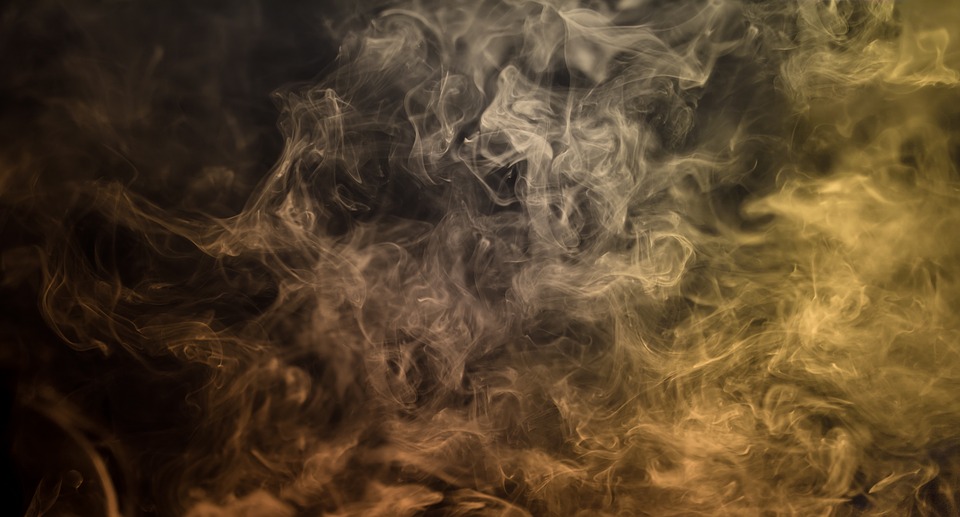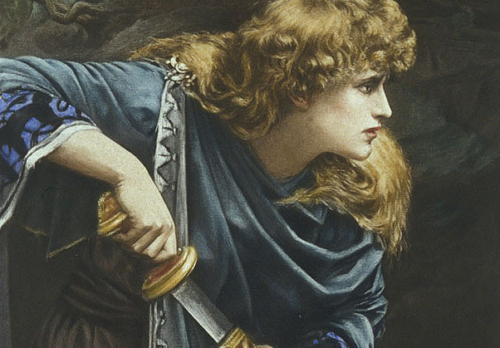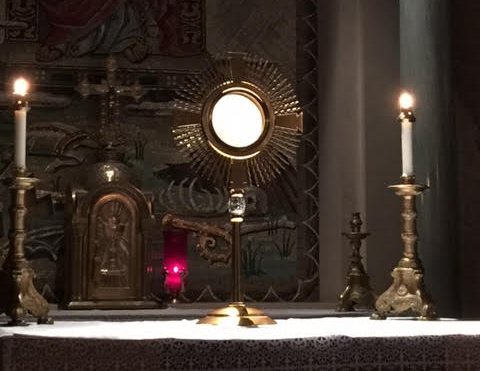We often hear of how the laity, by virtue of our baptisms, have a share in the priesthood of the Church and the priesthood of Christ, but it’s not a well-defined “priesthood” and that’s a good thing because really, our priesthood is to be the hands, feet, eyes and ears of Christ, wherever we are, and in whatever capacity we are being nudged forward by the Holy Spirit. An “undefined” priesthood means there is no narrowness to our scope; lay people within the Church serve continually, in every capacity outside the sacramental:
- If we may not preach from a pulpit, we can and do, preach the Gospel.
- If we cannot dispense absolution after confession, we can still be the open heart that listens to another, and directs them toward Christ, and advises sacramental address.
- Our anointings of the sick may not carry the forgiveness of sins, but — through the action of Christ, the Divine Physician — healings still come about.
I believe we layfolk are being brought into a moment of extraordinary understanding of what it means to be a priesthood-through-baptism, and that this understanding — if we embrace it — will necessarily abolish the unhealthy habit of clericalism that has enabled a poisonous, destructive culture of abuse and cover-up within our Church for too long.
One reason that culture exists is because Catholic laity have not used the power of their own priesthood to question or challenge our leadership, or to hold them accountable to Christ and His Church for the things they do. We know that our priesthood is not the same as the Apostolic Priesthood — nor should it ever be thought so — but we’ve perhaps over-deferred to the ordained clergy, mistaking the fact that our priesthoods are quite different to mean that they are not equal. Increasingly I begin to believe that, in God’s economy, they are in fact equal, if not in sacramental power and authority, then at least in service and duty, and in the potential to sanctify ourselves and the world.
With that in mind, my latest piece at Word on Fire recalls a moment when my lay priesthood was put into unexpected service thanks to a rosary that exuded a strange, chrism-scented oil, and considers the whole episode in light of two things: the appalling stories we are reading about some of the “Princes of the Church”, here in the United States and elsewhere in the world, and the strange “weeping Madonna” in New Mexico — a bronze statue that appears to be weeping not salt-water tears but (as with my rosary) a chrism-scented oil.
What does it mean when a statue of the Virgin seems to be weeping a chrism oil—oil that is consecrated every Holy Thursday by the hands of bishops and cardinal archbishops in every diocese?
No one can know, but I have a few ideas, not least that if Our Lady is weeping an oil so powerfully associated with the priesthood and the sacraments, it touches on the whole ecclesiology of the Church. Thus, it should be considered in light of the beyond-troubling headlines concerning powerful “princes” of the Church”—the men who use that oil, in persona Christi, to claim us for Christ, and seal us in faith, to heal our broken bodies and our frightened, sorrowful souls, and to ordain others into the priesthood which facilitates our Eucharistic Church.
If the tears of chrism remain a mystery, perhaps we may take it as a sign from the Mother of the Church that the Men of the Chrism need, yes, our prayers, but also something more: our help and our vigilance in facing a very difficult time of examination and needful, very likely painful correction.
What shall we do with that sign? Well, for one thing, we must be willing to investigate the long pattern of abuse, influence, and cover-up that involves Cardinal Theodore E. McCarrick (and his enablers) as carefully and thoroughly as we investigate miracles at Lourdes and tears of the Madonna. We must be as unrelenting in discovering proofs, seeking evidences, and distrusting “easy” answers about the men who run the Church as we are over each miraculous claim we study.
We must do this for the very same reason we are so careful about our miracles: for the credibility and protection of the Church itself, and in service to Christ, who is Truth.
Forgive me, but a chrism oil is all wrapped up in the priesthood. And I cannot but think that there is a revelation at hand — two in fact. One regarding what has gone too-long permitted in darkness and must now be brought fully into the light, and the other about our understanding of the power of our own priesthoods. If we are struggling to advance more vocations to the Apostolic priesthood, perhaps that is in part because we have not embraced our own.
We lay people are meant to step up, along with the good, faithful priests we know, and the deacons and religious all around us — and demand the mighty housecleaning within our leadership that is so very past due.
Do not ask, “Where are the people from ages past, who helped to reform and restore and rebuild the church?” Instead look around and understand: They are us. They are you and me.
- 600 years ago an ordinary woman like Catherine of Siena dared to speak truth to power — to popes and kings — and demand of them that they serve the Church in truth, and she got it done.
- A hundred years earlier, a laughingstock and mystic named like Francesco Bernardone (a Deacon) began a one-man reformation of the Church and his Franciscan sons and daughters are still all about bringing about the Kingdom of God through service.
- A few hundred years later, a Florentine tutor named Philip Neri began a movement to bring the Church outside of itself in order to bring the world within, and became a reluctant but holy priest, refusing the red hat of a Cardinal because he had no ambitions beyond ordinary priestly service.
In our own age, Dorothy Day once wrote, “Our problems stem from our acceptance of this filthy, rotten system.” She was talking about economics, but she could just as easily been talking about the clericalist culture that we — you and I — have allowed to grow into a toxic thing, and must now, right now and with urgency and courage, take to solemn task.
You can read my whole piece, here. I pray that the prayers of St. Catherine of Siena, St. Francis of Assisi, St. Philip Neri, Dorothy Day and others, will accompany us as we face the church-challenge of our time, for Christ’s sake. What saints have done without social media and insta-communications we should be able to do, today.
Image Source/Public Domain



5 Comments
LillyRose · July 28, 2018 at 10:57 am
First thank you so much for writing this, for the first time since I was abused again by a priest and a Church employee I think God cares about what happened to me. Secondly, there is an article in the local newspaper (which I’ll try to link below) that states that in the same town as the statue a sexual assault by a priest happened twice and it appears the bishop tried to cover it up and send the priest to a treatment program. For me this confirms that she *is* weeping for us and for the coverup by bishops. https://www.lcsun-news.com/story/news/local/2018/05/30/bishop-cantu-hobbs-priest-accused-sexual-abuse/656419002/
Kathy Salcido · July 31, 2018 at 2:31 pm
Dear Elizabeth, I’m new to responding to blogs, but I heard you yesterday on “A Closer Look” with Sheila Liaugminas and I felt I had to get connected with fellow Catholics that want to part of the solution. Thank you for your passion to make a difference and empowering the faithful to take responsibility of their own laity as Jesus disciples. As a mother and grandmother I’m trying desperately to keep our faith in my family as I see so many of our family members walk away due to their disappointment with the clergy. I’m finding it harder and harder to stay afloat and bring them home. Your article and words of wisdom ignited within me my responsibility to continue to do my best be a light in the midst of so much darkness. I’m such a novice, but passionate about my faith. I think of Moses as I tell the Lord, who will listen to me, a unimportant, insignificant layperson that I am. Thank you for providing a place where we can speak our disappointments, but hopefully find a way to build up our Catholic faith.
How to Restore a Church in Scandal? Begin with a Collective Confession – Saint Charles Victory Park · August 2, 2018 at 10:31 am
[…] is a great deal of work to be done, and as I have written elsewhere, the laity must necessarily be part of that work. As we discern how to proceed, we can immediately do two […]
With all due respect, Cardinal Wuerl, No. Bishops Investigating Bishops Won't Do - The Anchoress · August 6, 2018 at 11:28 am
[…] Wuerl is correct that there should be investigatory panels, but — as I have been writing for a few weeks — they must be entrusted to clear-eyed layfolk of varying gifts (from canon […]
Bishop Barron: "Demonic element" to clerical sexual abuse reports... - The Anchoress · August 27, 2018 at 7:25 pm
[…] the Vatican for a forensic investigation regarding the McCarrick issue, spiritual warfare, the validity of lay voices, today’s statement by the USCCB on the McCarrick story, the need to look into the claims of […]